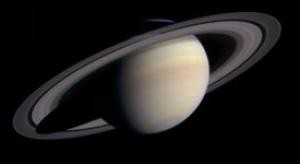 It's time for the Mars hoax email again. You may get email that says that Mars will appear as big as the full Moon, or even There will be two moons in the sky, and with a date, like August 27th. It comes from the 2003 Mars opposition announcement. In late August of 2003, Mars had a particularly close opposition, and in a telescope at 75x, Mars appeared as big as the Full Moon does with the unaided eye. Each summer, the email gets modified a bit more, and is pretty far from reality.
It's time for the Mars hoax email again. You may get email that says that Mars will appear as big as the full Moon, or even There will be two moons in the sky, and with a date, like August 27th. It comes from the 2003 Mars opposition announcement. In late August of 2003, Mars had a particularly close opposition, and in a telescope at 75x, Mars appeared as big as the Full Moon does with the unaided eye. Each summer, the email gets modified a bit more, and is pretty far from reality.Mars doesn't get real close to the Earth every summer. Not even once a year. The next close approach is in March of 2012. Mars closest approaches that happen in Augst or September are the closest that they get. The March event won't be particularly good. But it will be worth a look.
At the moment (late July 2011), Mars is a morning object, and the visual diameter is 4.4 arc seconds. One must magnify Mars by about 400x to bring it to the visual size of the Full Moon. Fairly large back yard telescopes can achieve this. Perhaps an eight inch (200 mm) or ten inch (250 mm) diameter telescope would perform OK at this magnification. However, the atmosphere needs to be really steady to get a good view. One can expect a brief really still view about once every five minutes.
And then, you'd get a view with the kind of detail you can see on the Moon. That is, you'd see the largest areas of light and dark. No craters or mountains. For Mars, this may include a polar cap, and shades of orange. Waiting until March will give you views that are about 4 times larger in any given telescope.
The closest views of Mars at the moment can be downloaded over the Internet. They come from a rover that is on Mars - Opportunity. The twin cameras give a very human like stereo view, in color (multiple images are taken with red, green and blue filters, which combine to make color images). Further, there's a microscope, which can take images that can show detail to something like a 20th of a millimeter.
 There is something about using your eyeball and a telescope and seeing it for yourself. It's different. There's still a month or so of Saturn's big show this summer. So get out to your local astronomy club's next event and take a look.
There is something about using your eyeball and a telescope and seeing it for yourself. It's different. There's still a month or so of Saturn's big show this summer. So get out to your local astronomy club's next event and take a look.



